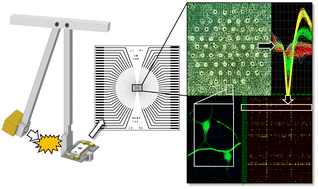2023-08-28 ジョージア大学 (UGA)
◆11,858人の子供を対象に行われた研究では、睡眠不足や入眠までの時間が、後の衝動的な行動と関連していることが明らかになった。睡眠の問題がなかった場合、衝動性も低くなることが確認され、睡眠は行動との関連性を示唆している。また、脳の活動性についての調査も行われ、この研究は睡眠の重要性を強調し、子供たちの心理的発達のための低コストの介入方法を提供する可能性があることを示している。
<関連情報>
- https://news.uga.edu/more-sleep-could-reduce-impulsive-behavior-in-children/
- https://www.sciencedirect.com/science/article/abs/pii/S2352721823000669
睡眠は、青少年の衝動性の発達に対するストレス環境の影響を媒介する: デフォルト・モード・ネットワークの安静時機能的結合の調節的役割 Sleep mediates the effect of stressful environments on youth development of impulsivity: The moderating role of within default mode network resting-state functional connectivity
Linhao Zhang, Zehua Cui, Landry Goodgame Huffman, Assaf Oshri
Sleep Health Available online: 1 June 2023
DOI:https://doi.org/10.1016/j.sleh.2023.03.005
Abstract
Objectives
Youth raised in stressful environments are at increased risk for developing impulsive traits, which are a robust precursor of problem behaviors. Sleep may mediate the link between stress and problem behaviors as it is both sensitive to stress and essential for neurocognitive development underlying behavioral control during adolescence. The default mode network (DMN) is a brain network implicated in stress regulation and sleep. Yet, it is poorly understood how individual differences in resting-state DMN moderate the effect of stressful environments on impulsivity via sleep problems.
Methods
Three waves of data spanning 2 years were obtained from the Adolescent Brain and Cognitive Development Study, a national longitudinal sample of 11,878 children (Mage at baseline = 10.1; 47.8% female). Structural equation modeling was used to test (a) the mediating role of sleep at T3 in the link between stressful environments at baseline and impulsivity at T5 and (b) the moderation of this indirect association by baseline levels of within-DMN resting-state functional connectivity.
Results
Sleep problems, shorter sleep duration, and longer sleep latency significantly mediated the link between stressful environments and youth impulsivity. Youth with elevated within-DMN resting-state functional connectivity showed intensified associations between stressful environments and impulsivity via shorter sleep duration.
Conclusion
Our findings suggest that sleep health can be a target for preventive intervention and thereby mitigate the link between stressful environments and increased levels of youth impulsivity.


